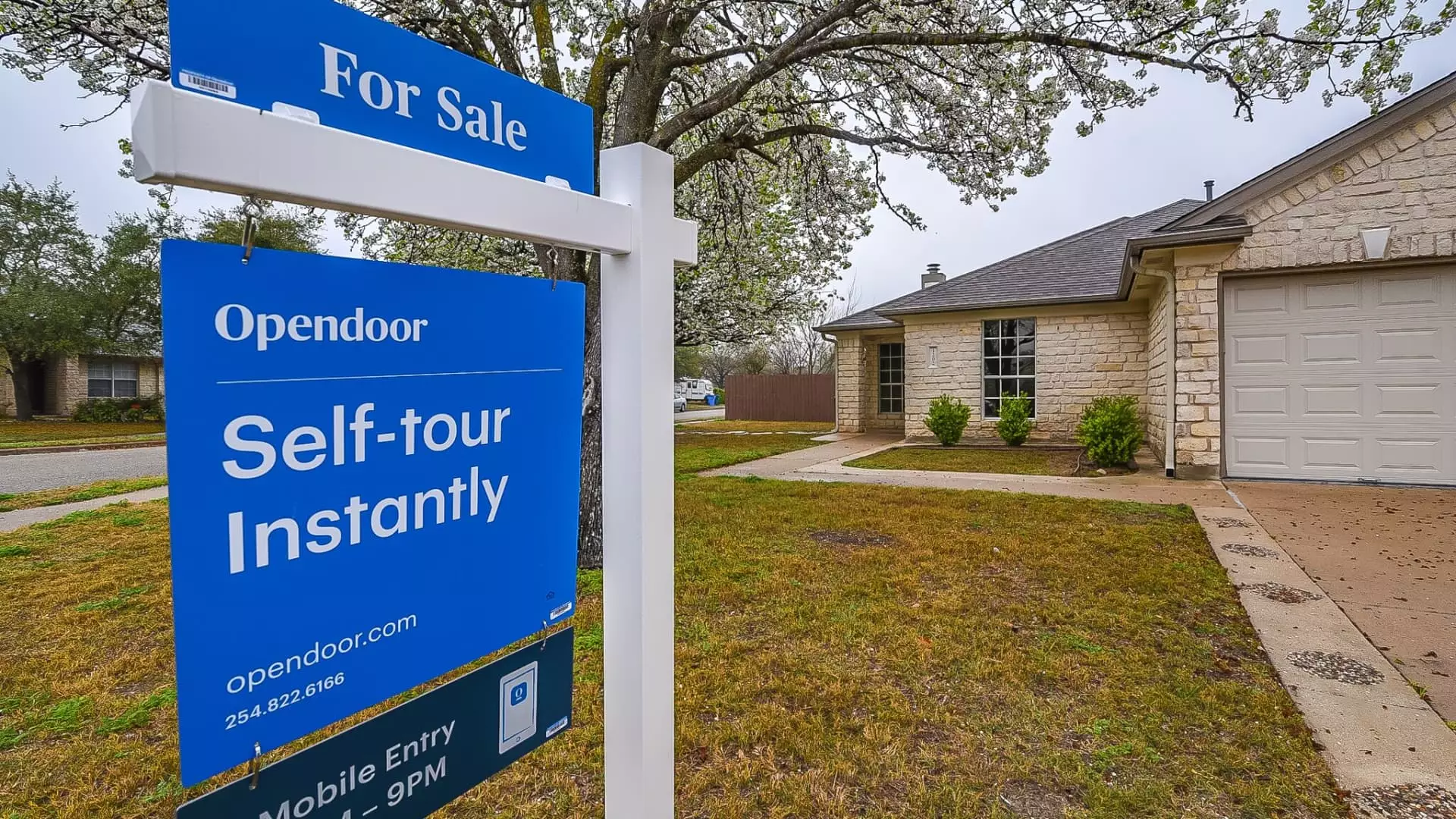Opendoor’s recent stock rally has been nothing short of astonishing. After languishing in the depths of under $1 per share, the company’s shares soared nearly fivefold since early July, capturing the imagination of investors eager to find a turnaround story in the beleaguered real estate technology space. Yet, beneath this meteoric rise lies a fragile foundation. The surge was driven more by speculative fervor, bolstered by high-profile hedge fund endorsements, than by tangible improvements in business fundamentals. The resultant volatility, with shares halving in after-hours trading, exemplifies the precarious balance between investor optimism and skepticism. Such thrill rides underscore the peril of overconfidence in a sector that remains heavily susceptible to macroeconomic headwinds, especially rising interest rates and declining housing demand.
The Challenge of a Shattered Market and a Beaten-Down Brand
At its core, Opendoor’s business model was designed to leverage technology in buying and selling homes rapidly—an innovative approach attempting to disrupt a traditionally slow and fragmented industry. However, the sudden onset of rising interest rates in 2022 transformed this vision into a nightmare, drastically reducing the company’s revenue and liquidity. The decline from $15.6 billion in 2022 to just over $5 billion last year was a stark wake-up call, revealing how vulnerable the model is to external economic shocks. The company’s stock price, which hit as low as 51 cents in mid-2023, reflects investor despair and doubts about its viability. The contemplated reverse split—a drastic measure to artificially elevate the stock price—highlighted the desperation to stay listed on Nasdaq, but the firm wisely canceled it, signaling both a recognition of the need to rebuild credibility and a cautious optimism about navigating the turbulent waters ahead.
Strategic Pivot: Beyond the Fluctuating Real Estate Markets
Carrie Wheeler’s comments about expanding beyond traditional iBuying into a less capital-intensive referral model mark a pivotal strategic shift. It’s a recognition that relying solely on buying homes and flipping them in volatile markets is no longer sustainable. Instead, transitioning into a referral-based business could potentially generate steadier revenue streams with lower operational risks. This move raises questions about whether Opendoor can successfully reposition itself in a highly competitive landscape where giants like Zillow and Redfin are also pivoting. Wheeler’s emphasis on transparency and listening to investor feedback reveals a company that is finally acknowledging its vulnerabilities—perhaps the first step toward genuine transformation. Still, the market remains skeptical, viewing such announcements as insufficient without concrete proof of sustainable profitability or market share growth.
Hedging Bets and the Reality of Market Sentiment
The involvement of prominent hedge fund manager Eric Jackson injected a dose of optimism into the narrative, with his projection that Opendoor’s shares could surge to $82 if the company’s turnaround accelerates. Such bullish forecasts, however, seem disconnected from the current reality. Operating losses continue, and revenue forecasts have been sharply downgraded—projected to decline by more than a third in the coming quarter. The company’s decision to cut marketing spend further illustrates the current contraction in activity, as declining home purchases and persistent high mortgage rates continue to choke demand. This dissonance between investor hype and company performance illuminates a broader truth: markets can be irrational, especially when fueled by hope rather than evidence.
The Hope for Renewal in a Harsh Environment
Despite the mounting challenges, Opendoor’s strategic attempt to redefine its business model signals resilience and adaptability. While the immediate outlook remains bleak—revenue declines, shrinking home acquisitions, and cautious spending—the company’s focus on new revenue streams suggests a willingness to evolve. It’s a risky gamble, betting on a future where housing markets stabilize and demand rebuilds, allowing the firm to regain profitability. Yet, the question remains: how much patience will investors have if the next few quarters do not show immediate signs of recovery? Until then, Opendoor’s journey embodies the peril and promise of innovative disruption in a battered industry—where shifts in strategy are desperately needed but fraught with uncertainty, and where hope often outpaces reality.

